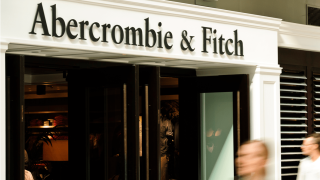
Sentiment continued to swing back and forth this week with traders fretting over the ‘Big Beautiful Bill’ and fears of stagflation one minute, then leaping up and down over a surprise trade court ruling blocking Trump’s tariffs and positive earnings the next.
Treasury bond yields resumed their upward trajectory, with the 30-year once again breaching the psychologically-significant 5% level, while minutes from the Fed meeting of 6-7 May showed the central bank expects the economy to slow and inflation and unemployment to rise in the coming months, meaning it faces a ‘difficult trade-off’ when it comes to interest rates.
Weekly jobless claims hit their highest level in a month, while the number of Americans filing for unemployment insurance hit the highest level since November 2021, reinforcing the Fed’s concerns.
Elsewhere, a panel of judges at the US Court of International Trade blocked the President’s ‘reciprocal’ trade tariffs on the basis his claims they were a ‘national emergency’ were illegal and demanded they be removed within 10 days.
In yet another twist to the tariff saga, late on 29 May Trump got a reprieve after a federal appeals court reinstated his tariffs while it considers the administration’s appeal against the initial ruling.
Nvidia
AI chips champion Nvidia appears to be absorbing the shock of Donald Trump’s investment restrictions on China far better than many expected.
By thinking on its feet many of the H20 chips earmarked for Chinese labs were repurposed, shaving $1 billion off the $5.5 billion inventory write-down hit flagged in April, bolstering hopes that the firm’s $8 billion hit this quarter might be similarly exaggerated.
Nvidia said its gross margin of 61% for the quarter would have been 71.3% if not for the China-related charge.
Nevertheless, the results also showed that the long-term investment case in AI remains intact. ‘Global demand for Nvidia’s AI infrastructure is incredibly strong,’ said CEO Jensen Huang on the earnings call.
Revenue rose 69% in the quarter from $26 billion a year earlier. Sales in the company’s data centre division, which includes AI chips and related parts, grew 73% on an annual basis to $39.1 billion, accounting for 88% of total revenue, making this the 10th straight quarter of consensus beats.
Microsoft has ‘deployed tens of thousands of Blackwell GPUs and is expected to ramp to hundreds of thousands’ of the company’s GB200 product, due largely to its relationship with OpenAI, CFO Colette Kress noted.
Abercrombie & Fitch
Shares in Abercrombie & Fitch gained as much as 32% on 28 May, despite the American lifestyle retailer cutting its annual profit forecast due to Trump’s trade tariffs policy.
Abercrombie said it expects annual net income per share in the range of $9.50 to $10.50, down from its prior forecast of $10.40 to $11.40 per share, due to a $50 million hit from tariffs including a 30% levy on imports from China and 10% on all other global imports.
Despite this setback, the contemporary clothing company reported first-quarter net sales of $1.10 billion, beating analysts’ estimates of $1.07 billion, cheering investors.
The company, headquartered in New Albany Ohio, partially attributed the uplift to its subsidiary brand Hollister.
Chief executive Fran Horowitz said: ‘Hollister brands led the performance with growth of 22%, achieving their best-ever first-quarter net sales, while Abercrombie brands net sales were down 4% against 31% sales growth in 2024.’
Costco
The membership-based warehouse retailer Costco fell modestly in after-hours trading on 29 May despite posting earnings for its third quarter which were slightly ahead of expectations.
Earnings per share came in at $4.28 versus the $4.24 which had been pencilled in by analysts and revenue was $63.21 billion, just ahead of the consensus estimate of $63.19 billion.
This three-month period, running until 11 May, did encompass a reasonable chunk of the time since the White House unveiled sweeping tariffs.
Like-for-like sales in the period were up 8% and ecommerce sales surged 16%. The company is somewhat unusual in not providing full-year guidance but it did talk about how it was adapting to tariffs.
The company is leaning on its scale to get the best available deals from suppliers and has been rerouting goods from countries which face higher tariffs to its operations outside the US.
It has also been selective on where it will absorb the impact of tariffs and where it looks to pass this on. The focus being on keeping prices as low as possible for staple items.
Ways to help you invest your money
Put your money to work with our range of investment accounts. Choose from ISAs, pensions, and more.
Let us give you a hand choosing investments. From managed funds to favourite picks, we’re here to help.
Our investment experts share their knowledge on how to keep your money working hard.
Related content
- Fri, 06/06/2025 - 11:25
- Tue, 27/05/2025 - 08:21
- Mon, 26/05/2025 - 15:33
- Fri, 23/05/2025 - 12:09
- Fri, 23/05/2025 - 11:05
